Self Hosted vs GitLab Cloud
Hello again! So now we are going to chat about the headache that I faced lol.
But before that, a quick clarification on the terminology.
Cloud GitLab
This is basically the GitLab that any individual users use over the internet. You access it by going to URL gitlab.com. The GitLab is hosted by the GitLab company, and we only have to use their software :). All infrastructure problems are managed by them
Self Hosted
For companies like mine, we have our own GitLab installed in our servers. The infrastructure is fully managed by us. Which means
- The domain name is ours
- The server is also ours (can be a cloud service, or on-prem)

So any server upgrades, GitLab patches etc. – will be internally managed by our colleagues (and not the responsibility of the GitLab team).
Knowing the differences is key – because for GitLab pages to be active, there are some additional administrative setup that is required to support this feature. In Cloud GitLab, this has already been setup, and we can already use it as you can see in our GitLab Pages Intro. But in self-hosted GitLab, this was different!
How did we bump into this issue
Firstly, as explained in a previous article, we are trying to push a report to be hosted centrally for all our team members to view.
Ideally, this will be done as part of the automated testing pipeline playwright. The configuration also seems simple, just add the CI YAML file, and push the relevant artifacts into the public folder (all discussed in the previous article).
But ofcourse, things never go as planned – so the pages never got deployed. And to fix it, I manually setup GitLab pages in my repo for both
- My TSP GitLab account
- My personal GitLab Cloud Account
And here are the differences:
TSP CI File
My TSP GitLab CI file is as follows:
pages:
stage: deploy
script:
- mkdir -p public
- echo "Ready to deploy"
artifacts:
paths:
- public
only:
- main
tags:
- local
I need to specify the local tag because our setup requires us to specify which runner to use. Our sexy devops team has configured different runners with different specifications to run different jobs.
My GitLab Cloud CI File
pages:
stage: deploy
script:
- mkdir -p public
# - cp -R * public/ # Or any command to move your build output to the public folder
artifacts:
paths:
- public
only:
- main # Adjust to your branch if needed
No local tag required, because GitLab Cloud has dedicated runners for users across the world by default
No Deploy Job
Once merged into main, the TSP pipeline did not have a successful deploy job: 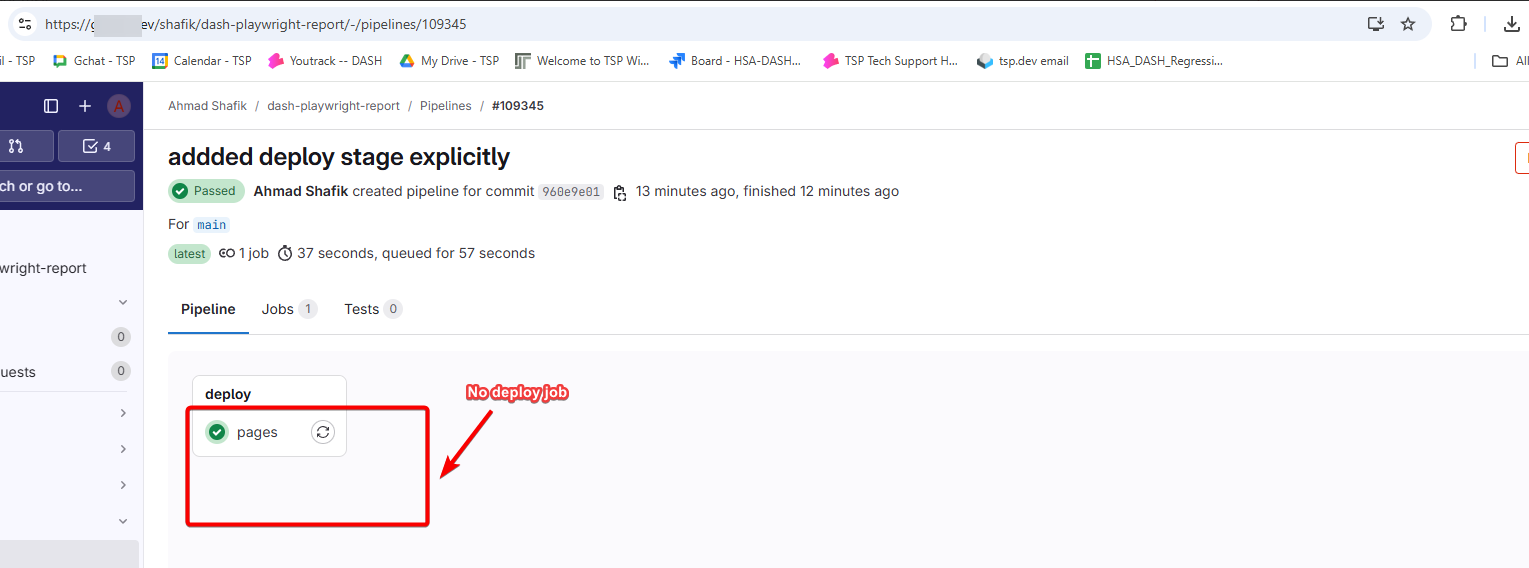
As in the previous article, GitLab Cloud pipeline has the deploy job: 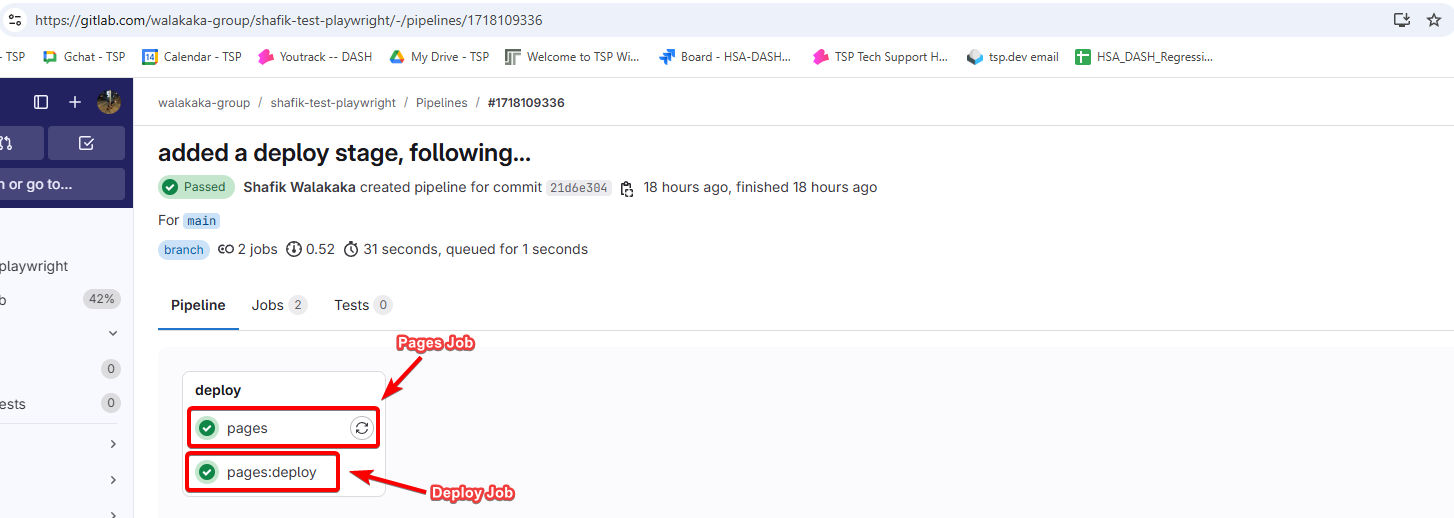
If you want to compare against the youtube video tutorial, they also have the deploy job: 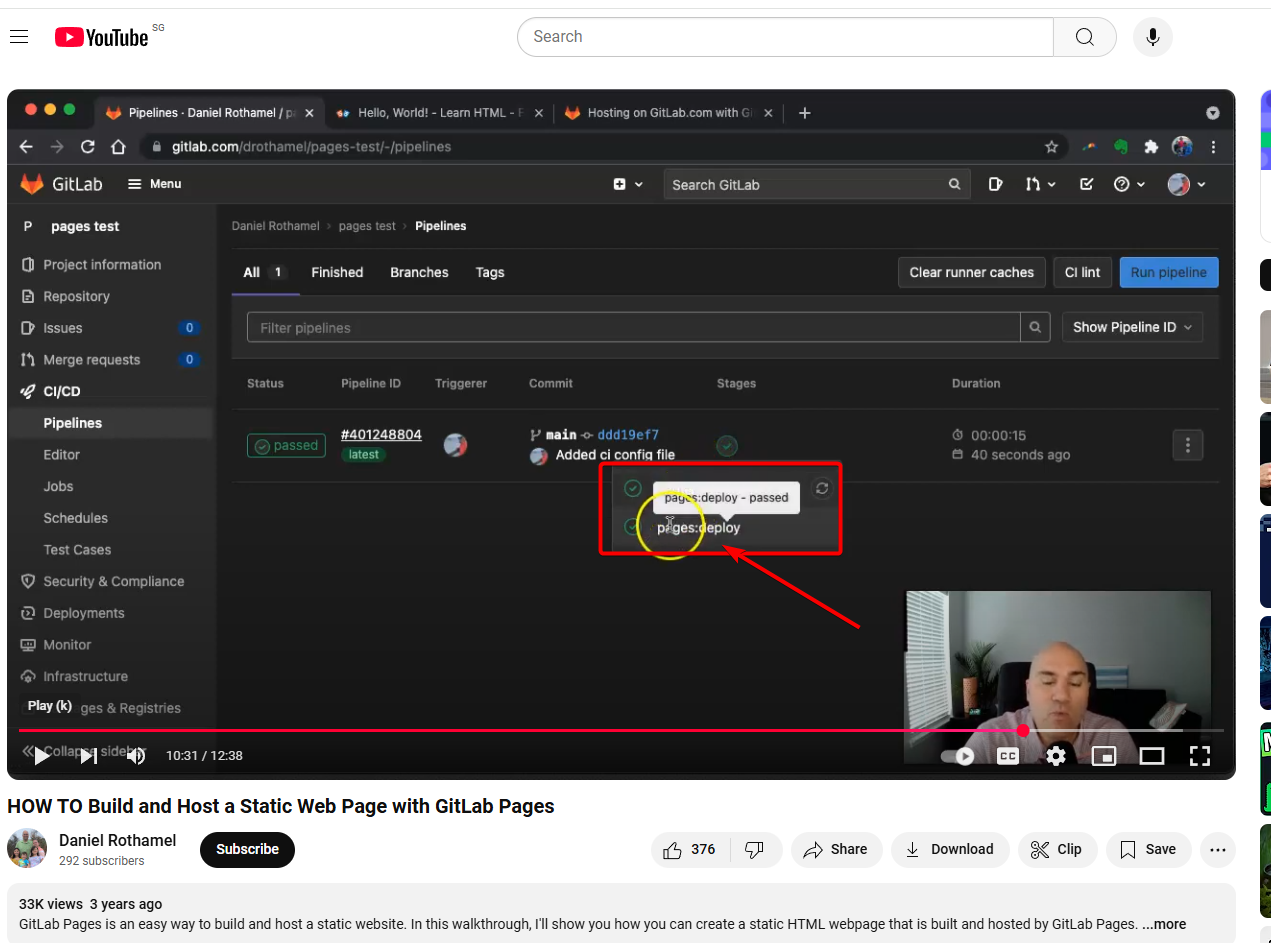
No GitLab Pages Button
In our self-hosted GitLab, the GitLab Pages button never appeared: 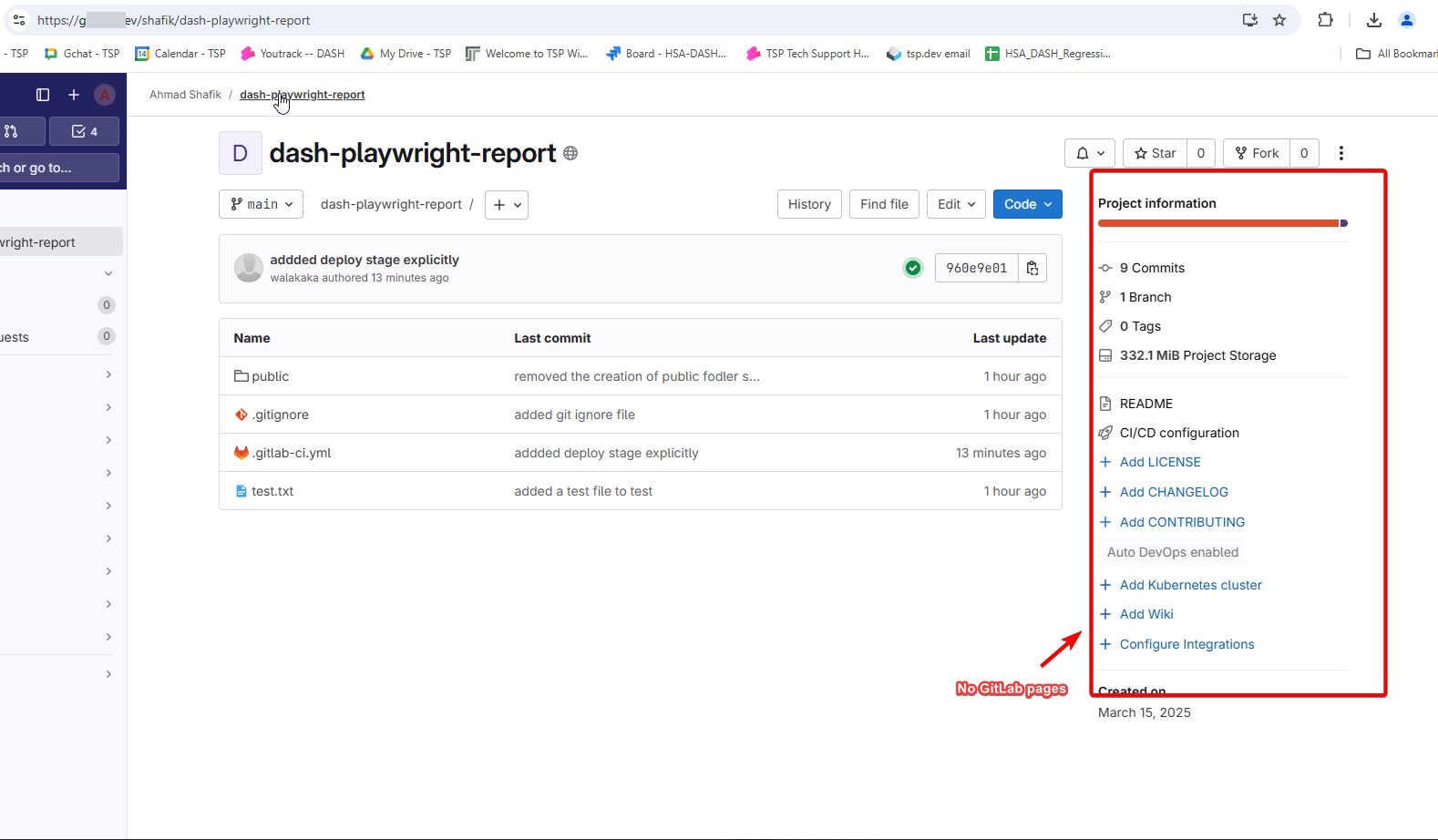
As per the previous article, the pages button was clearly there in GitLab Cloud: 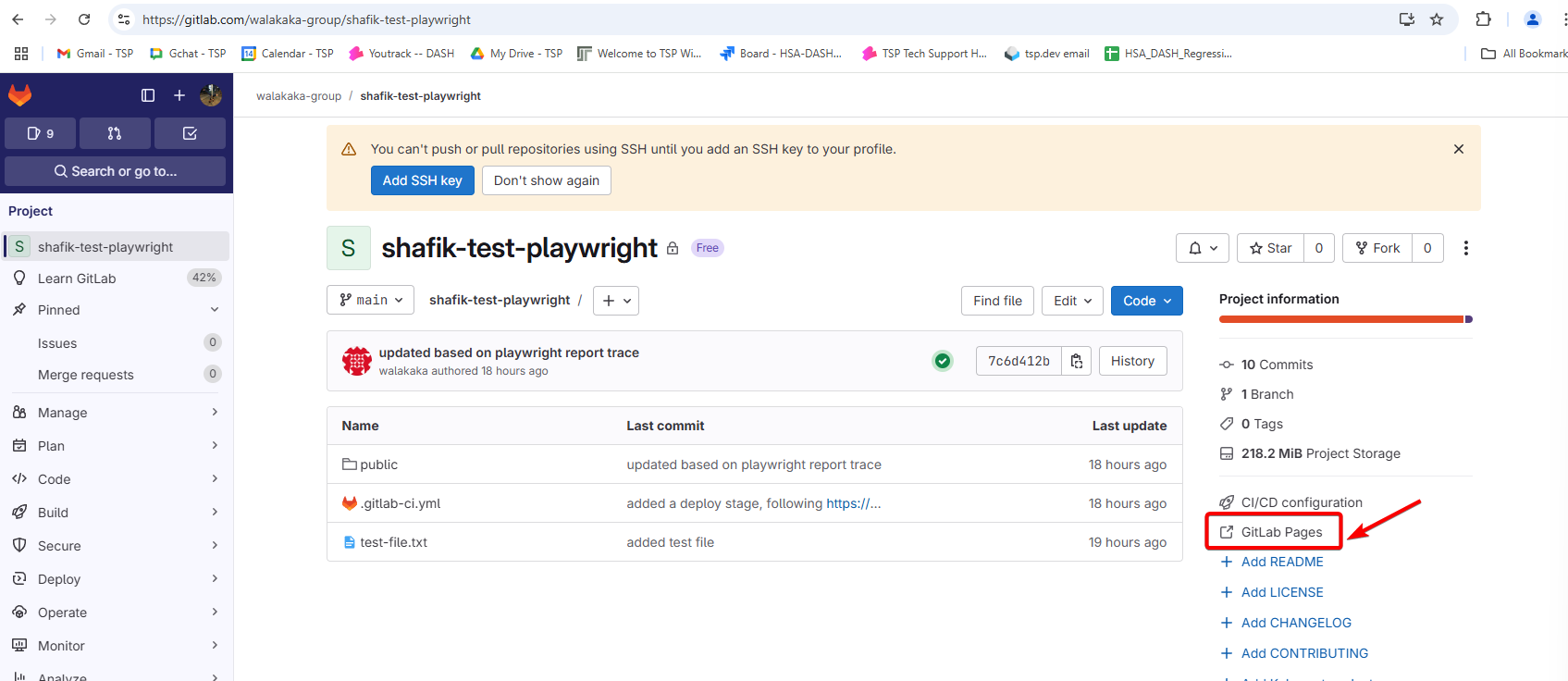
No GitLab Pages Settings for Self Hosted GitLab
Just check the settings, and you will see that there is not Pages settings in my self hosted GitLab: 
Just compare this against the GitLab cloud – the settings are all there: 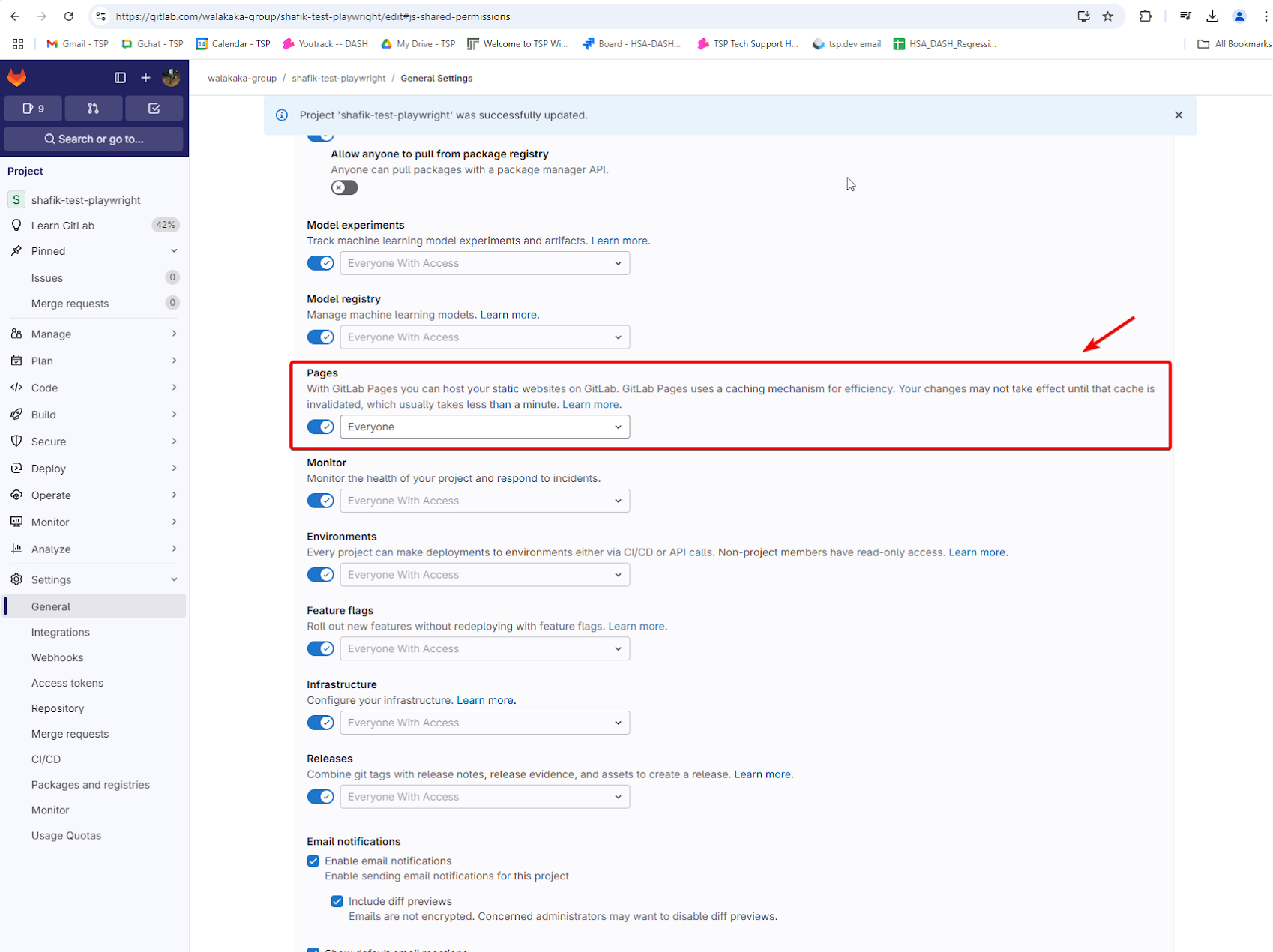
Conclusion
Self hosted GitLab will need some setup at the infrastructure level, to support the GitLab functionality feature.
This is already pre-configured for the GitLab cloud.
So – until our sexy DevOps colleauges completes the administrative steps (which would take time to configure, test etc.). The feature is not supported for self-hosted.
Hope this helps anyone out there struggling w the same issue. And if it doesn’t it helps me clarify my thoughts on the issue.
Peace and love, Shafik Walakaka <3